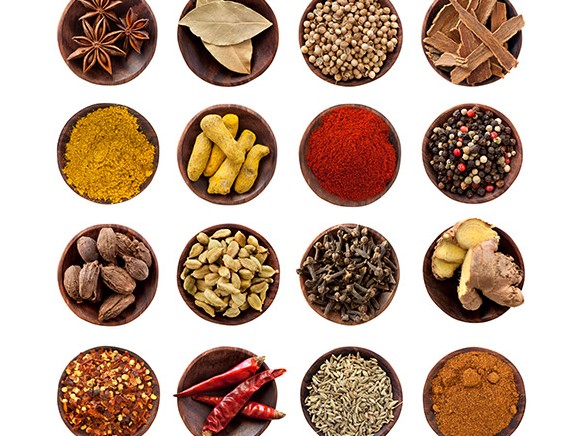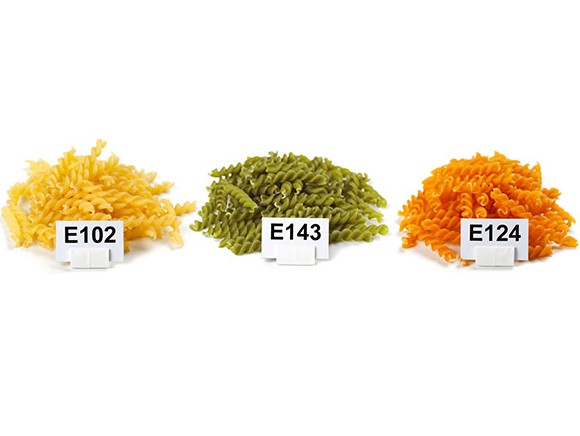
Clean label, reformulations, organic, allergen-free, sustainability: the food industry cannot afford to ignore these topics. This article features contributions from five food manufacturers who talk about their approach, the bottlenecks and their views of topics related to raw materials and ingredients. They have words of caution, such as about the rise of a USA-style ‘claim culture’, saying “That stifles creativity,” and “The cure must not be worse than the disease.”
When asked about the trends in raw materials and ingredients, the first thing that the manufacturers mention is ‘clean label’. Some of them, such as Dutch Spices in Nijkerk, have turned it into a successful aspect of their business, whereas other companies are having more difficulty embracing that requirement. “Our customers simply don’t want to see certain E-numbers or allergens listed on the label, even though consumers are not specifically demanding that. And some customers want conflicting things: clean label yet a three-week shelf life, good colour fastness and no moisture loss. That’s not possible unless you change something. People tend to forget that the majority of E-numbers also have a positive function, such as nitrite in cold meat cuts, which blocks botulism. In the quest for clean label we won’t make any compromises on quality or safety. I work closely with my customers to ensure that,” says Eric Tetteroo, account manager at Dutch Protein Services (DPS) in Tiel.
Both Eric and Paul Vos, director of ECS Paneermeel and Mastermix in Terschuur, mention the same way of resolving that tension between customers and suppliers: educating customers. Paul Vos: “The fact that the market has become more critical and more transparent is a good thing, but on the other hand it means that all E-numbers have been given a bad name. Take E-160, for example – it’s paprika extract, which is completely harmless. If customers have a better understanding of why certain ingredients are used, they are less likely to have a knee-jerk reaction as soon as they hear about inclusion of an E-number. After all, they’ve all been extensively tested to gain approval. Some ingredients play an essential role in the flavour, and that’s what we should be guided by – not the label.”
Vos: “We set out to find possibilities together with our customer and our Research & Development department. For example, one customer wanted a clean-label satay sauce. One component of that is soy sauce, but that contains preservatives for the consumer market. In this case we didn’t need that since a short shelf life was sufficient, so we developed a soy sauce without any E-numbers in it.”
'We now need to regain consumer confidence through a high level of transparency and quality assurance'
Avoiding allergens is another top-of-mind topic for producers. Carl Siegert, owner of organic bakery Carl Siegert sinds 1891 in Harmelen, says: “There are various types of allergens, the largest group being wheat gluten. Many new grain types have arrived on the market, such as lupine, quinoa and spelt, but soya, nuts and eggs or milk are also used in bakeries. For me, it’s virtually impossible to make allergen-free products with no risk of cross-contamination. Hypes are talked up through social media and other channels; it makes my hair stand on end when someone talks about an intolerance to yeast or rye.”
Siegert finds it a shame that labelling and the allergy ‘trend’ have become so predominant. “It has a seriously limiting effect on the creative spirit. We need to watch out that we don’t end up with a USA-style ‘claim culture’ where everyone has to protect themselves against potential claims.”
Betty Groen, marketing advisor at Dutch Spices, takes a different view. The ultimate desire of the herb and spice company, which was founded in 2011, is that the whole family can enjoy the same meal at the same time, even those people who have a food allergy and/or intolerance. The food must be not only healthy, but also and above all tasty – so no compromises on flavour. The company does not use any of the 24 allergens on the Dutch LeDa list, and the risk of cross-contamination is excluded. For allergen management, it works in accordance with the VITAL standard. Groen: “This chain management approach supports transparency and confidence in the origin information. Thanks to our raw materials expertise we know precisely which building blocks we need to use to create a flavour that is as close as possible to the original taste. In addition to new raw materials, we’re also continually searching for new flavours. Rapeseed oil, fruits such as mango and raspberries as well as vegetables such as beetroot are on the way up. We don’t use yoghurt or drink-based ingredients such as red wine – both of which are also trends – because of the allergens they contain. The fact that food has come to revolve around convenience rather than health is a situation that we’ve all created together. We now need to regain consumer confidence through a high level of transparency and quality assurance.”
Verstegen Spices & Sauces in Rotterdam launched its Pure label four years ago for the same reason. It addresses all the demands: no declarable allergens, flavour enhancers or phosphates and a minimal salt content. Jan den Heijer, director of Fresh Services & Food Industry at Verstegen Spices & Sauces: “Even back then, we were ahead of the new legislation. And since then, our current products have also been adapted per product group (marinades, sauces, herb mixes) to the standards of the Pure label. Flavour and quality take priority in all we do. For example, we won’t replace mustard in a honey-mustard sauce even though it is an allergen because that would detract from the flavour.”
One clear focus of Verstegen is sustainability. “Our planet is on loan from our children, so we must take care of it,” believes Den Heijer. “We source our herbs and spices from all four corners of the world and we want to continue to do so in the future. Projects are underway in various countries and we’re launching new projects all the time to safeguard production continuity. We’ve succeeded in ensuring that the pepper we source from the island of Banka in Indonesia, for example, is grown 100% organically.” Den Heijer notes that the story behind the product is becoming more important than the price. “Customers want to know where a product comes from, and that’s also reflected in product names, such as ‘Himalayan salt’ for instance.” Corporate social responsibility (CSR) plays a key role in Verstegen’s business operations, and Dutch Spices is very involved in the topic too. Jan den Heijer: “We publish a CSR report every year to inform customers and partners about our goals and achievements.”
Eric Tetteroo has also noticed that organic production and sustainability are here to stay. “That’s illustrated by the demand for certified soya, for example – demand is already very high, and still rising. We’re SKAL certified, plus we are a member of the Riskplaza foundation, an organisation which checks the origin of products for any discrepancies. Customers are visibly reassured when they hear that.”
Carl Siegert: “Salt reduction is a difficult topic because salt equals flavour. In terms of added salt, we stick to Dutch law. If you look at Germany or France, bread there contains a lot more salt. The Netherlands always wants to be the ‘teacher’s pet’. There are alternative, natural flavour enhancers such as tomatoes or Parmesan, but some people have intolerances to those. You could make use of umami (the 5th taste sensation) but I steer well clear of that. You can never completely eliminate all the risks. The cure must not be worse than the disease, as they say.”
Paul Vos (ECS): “It’s a healthy and logical trend to reduce the salt content in our food. We take a tailor-made approach: if customers want less salt, then that’s what we give them.” DPS also provides customised solutions. Eric Tetteroo: “The sensation of saltiness can be achieved with 60% less sodium but it involves two E-numbers and is a much more expensive option than table salt.” See also the article on Snijders Vleeswaren in Born, in which company director Peter Francken explains that they have responded to market demand for reduced salt levels by replacing regular salt with OneGrain mineral salt.

“Everyone is doing their best to make the food industry better and cleaner,” concludes Erik Tetteroo. “The demand is there, and so too is the will. Alternatives can always be found but sometimes they come with disadvantages, such as a higher price or an extra listing on the label. There are some very good alternatives to meat: not only soya but also proteins from grasshoppers or meal worms. There are sugar and fat replacements, and we have halal and kosher products – but each special request increases the cost base.”
The food industry and its customers need time to readjust to one another. Mutual understanding, knowledge-sharing and collaboration are the keywords in that process.
‘If customers have a better understanding of why certain ingredients are used, they are less likely to have a knee-jerk reaction as soon as they hear about inclusion of an E-number’
Source: ingrediënten: ©iStock/RobynMacKenzie; E-nummers: ©iStock/erierika